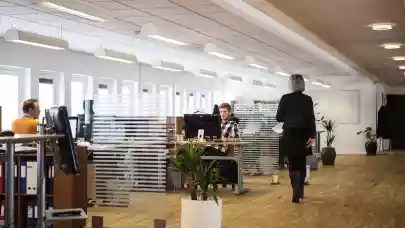
Economic uncertainty is beginning to impact investment activity in Europe’s commercial real estate market, as shown by the data recorded for Q2 2022 in the latest Capital Markets Snapshot for EMEA by Colliers. The Q2 2022 assessment also suggests that the forecast of any impacts will vary widely, with a continued appetite for specific sectors and sub-markets
Declining growth projections, rapid price rises, tighter monetary policy, and Russia’s ongoing war in Ukraine led to a wait-and-see attitude among investors in some major markets. In the UK, investment volumes slumped to £10 billion (€11.8 billion) in Q2 from £17 billion in Q1, with a slowdown across asset classes despite major transactions continuing in key centres. Germany also saw a rapid reversal from the optimism of the first quarter, although a strong Q1 contributed to an overall investment of €28.4 billion in the first half of 2022, the second-best half-year performance of the decade.
The market saw €550 million worth of transactions in H1 2022 which represents a 20% drop in activity y-o-y. However, the average deal size increased by 20% compared with H1 2021. The share of domestic capital acquiring commercial real estate in Hungary increased considerably from 63% in H1 2021 to 85% in H1 2022.
“We expect an increased level of activity by off-shore capital for the remainder of 2022 taking away market share from the local investors. The market is witnessing increasing costs of deal financing and an uptick in Hungarian CDS spreads affecting pricing in general. Increase of rents, through inflating construction costs and CPI adjustments, shall balance out the softening yields and preserve capital values," said Bence Vécsey, Director, Head of Capital Markets at Colliers Hungary.
Other major CRE markets posted encouragingly robust growth. France saw a rebound propelled by the retail, office, and industrial & logistics (I&L) investment, while Italy notched up almost €3 billion of activity over the quarter, with I&L again playing a major role but hotels were also prominent. Spain registered volumes well above historical averages. Central and Eastern Europe (CEE) also showed resilience, most notably Poland enjoying an exceptional second quarter driven by investment from other CEE markets.
Luke Dawson, Managing Director, EMEA Cross Border Capital Markets at Colliers, said: “Concerns about the economic outlook and rapidly increasing debt costs saw softening demand, particularly in the core end of the market across most asset classes. However, the end of most COVID-19 restrictions has fuelled a boom in leisure travel that is bringing interest back to the hotels and hospitality sector, particularly in the tourism hotspots of southern Europe. While uncertainty is expected to persist in the latter half of 2022, any broad downturn is likely to be accompanied by bright spots in certain sectors and sub-markets as investors look to unlock value.”
After months of sluggish activity, France’s office sector saw some sizeable deals, including some outside the capital. The Rio building in Paris’s central business district was bought by M&G Real Estate France from ARDIAN for €270 million, while Swiss Life REIM sold the high-rise La Marseillaise tower in Marseille to 2 SCPI for €250 million.
Investors in Germany’s CRE market were driving harder bargains in Q2, with a widening spread between the bid and ask prices. Based on ongoing transactions, Colliers estimates price reductions of between 10 to 25 basis points for office assets in Germany’s top seven urban investment markets, likely driving up yields beyond the 3% mark.
Signs of a revival in the hotel sector were clearest in Italy over the quarter, as tourism makes a comeback. Two of the most notable were in Rome, with the Hotel Majestic changing hands and Four Seasons purchasing an office building in the historic centre of the capital to convert.
The living sector remained the main investment target in some smaller European markets. Denmark saw transaction volumes of €3.2 billion over the quarter, up almost 30% from the same quarter a year previously, with almost half attributable to residential rental properties. In Ireland residential represented 36% of total turnover, versus just 22% compared offices. The top three deals were all private rented sector assets in Dublin.



